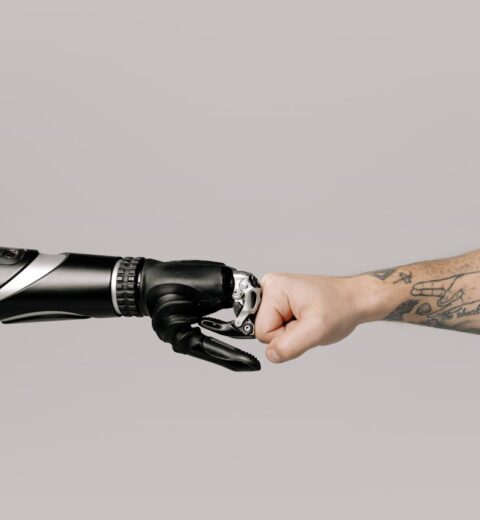Recruitment has entered an era of speed. What used to take weeks, resume screening, scheduling, multiple interview rounds now often happens in just a few days. For some roles, candidates are assessed, interviewed, and offered a position within 24 to 72 hours.
This acceleration brings opportunities and challenges. For candidates, it means less time to prepare. For recruiters, it means ensuring both speed and quality aren’t compromised.
This article explores why interview preparation is more critical than ever, how candidates can prepare effectively under compressed timelines, and how recruiters can support them without slowing down the process.
Key Takeaways
- High-speed hiring compresses preparation time, demanding sharper, more efficient interview readiness.
- Candidates must prioritize research, storytelling, and practice under time pressure.
- Recruiters play a dual role: process facilitators and rapid prep coaches.
- Technology—AI, automation, and virtual platforms—speeds up hiring, but it also changes how candidates should prepare.
- The best-prepared candidates stand out, even when everyone is moving fast.
The Evolution of High-Speed Hiring
From Weeks to Days
Traditionally, candidates applied for roles, waited weeks for callbacks, and often navigated 3–5 interview stages across several weeks. Today, market demand, talent shortages, and technology have reshaped this timeline.
- AI-driven resume screening eliminates manual shortlisting.
- Automated scheduling tools allow same-day interview bookings.
- One-way video interviews replace first-round phone screens.
- Data-driven assessments filter candidates rapidly.
Also read: 24-Hour Hiring: Myth or Achievable Goal?
The Candidate’s Challenge: Preparing at Speed
A faster hiring process benefits employers, but for candidates, it can be overwhelming. Preparation windows shrink dramatically, leaving less time to:
- Research the company and role
- Develop tailored responses
- Practice technical or case challenges
- Anticipate cultural-fit questions
Common Challenges
- Information Overload – Candidates must filter what matters most.
- Compressed Timelines – Sometimes <48 hours to prepare.
- Multi-Stage Days – Phone screen → technical test → panel interview in hours.
- Stress Factor – Limited time heightens anxiety and impacts performance.
Also read: Why Traditional Recruitment Is Broken—And What to Do Instead

Candidate Strategies for Fast Interview Preparation
1. Build a Permanent Interview-Ready Toolkit
Preparation begins long before you apply. Smart candidates create resources they can deploy at a moment’s notice:
- Updated resume & LinkedIn profile – Ready for quick sharing.
- Portfolio / work samples – Curated by role type (design, sales, engineering).
- STAR method examples – 5–7 structured answers (Situation, Task, Action, Result) covering leadership, conflict, success, failure, innovation.
- Elevator pitch – 30-second value statement that works across roles.
Also read: How to Stand Out in a Marketplace Model
2. Do Targeted Company Research in 60 Minutes
Instead of reading everything, focus on:
- Company mission & values (from About page + careers page).
- Recent news/press releases (shows awareness of current challenges).
- Team culture insights (LinkedIn profiles of interviewers, Glassdoor reviews).
- Competitor context (who they’re up against in the market).
3. Practice for Fast-Paced Formats
High-speed hiring often uses asynchronous video interviews or timed case assessments. Candidates should:
- Record 1–2 minute responses to common questions using a webcam.
- Limit rambling—use frameworks like STAR or PREP (Point, Reason, Example, Point).
- Simulate time-limited tests (e.g., 30-minute case study, whiteboard challenge).
4. Sharpen Soft Skills Under Pressure
Research shows body language and presence account for up to 55% of first impressions (The Sun).
Key tips:
- Enter confidently (shoulders back, grounded stance).
- Maintain open hand gestures.
- Mirror interviewer tone subtly.
- Practice active listening cues (“That’s a great question. Let me share an example…”).
5. Manage Stress & Energy
- Sleep well the night before (cognitive performance drops 20% with <6 hrs).
- Eat light, high-protein meals before interviews for energy stability.
- Breathing techniques (4-7-8 breathing) reduce anxiety in under 2 minutes.
The Recruiter’s Role in Candidate Preparation
Recruiters in high-speed environments must balance speed with readiness. Their prep strategies include:
- Quick briefing calls (10–15 minutes) to share role expectations.
- Process transparency – outlining interview stages upfront.
- Mock Q&A – 2–3 rapid-fire practice questions to boost candidate confidence.
- Feedback loop – immediate corrections to candidate positioning.
Also read: Will AI Replace Recruiters? The Real Answer
Advanced Prep for Specialized Roles
- Technical Interviews: Practice whiteboard challenges, coding under time pressure, and pair programming exercises.
- Sales Roles: Prepare a 2-minute pitch, mock objection handling, and closing statement.
- Leadership Roles: Be ready with examples of crisis management, team growth, and P&L responsibility.
Case Study: 48-Hour Interview Prep
Candidate Profile: Product Manager applying to a tech startup.
Timeline: Application submitted Monday 9 AM. Interview scheduled Tuesday 1 PM.
- Day 1 (4 hrs total):
- Resume tailored, STAR examples refreshed.
- Company news & competitor research.
- 2 hours mock video practice.
- Day 2 (3 hrs):
- 1 hr technical prep (product case studies).
- 1 hr recruiter briefing call.
- 1 hr stress management & mock run.
Outcome: Offer extended Friday. Candidate credited “structured, focused prep” for success.
Final Thoughts
High-speed hiring isn’t slowing down. Candidates who adopt structured, repeatable prep methods will thrive. Recruiters who coach effectively, even under time pressure, will secure stronger placements and better candidate experiences.
Preparation in a fast-paced world isn’t about doing more it’s about focusing on what matters most.
FAQ
How fast are hiring cycles today?
Some companies make offers in 24–72 hours, especially in high-demand sectors.
How should I prioritize prep if I only have 24 hours?
Focus on role research, 3–5 STAR stories, and practicing concise responses.
What can recruiters do to help?
Provide quick context, highlight red flags to avoid, and run short mock sessions.
Is AI preparation worthwhile?
Yes—AI mock platforms help candidates practice under time pressure and refine delivery.




